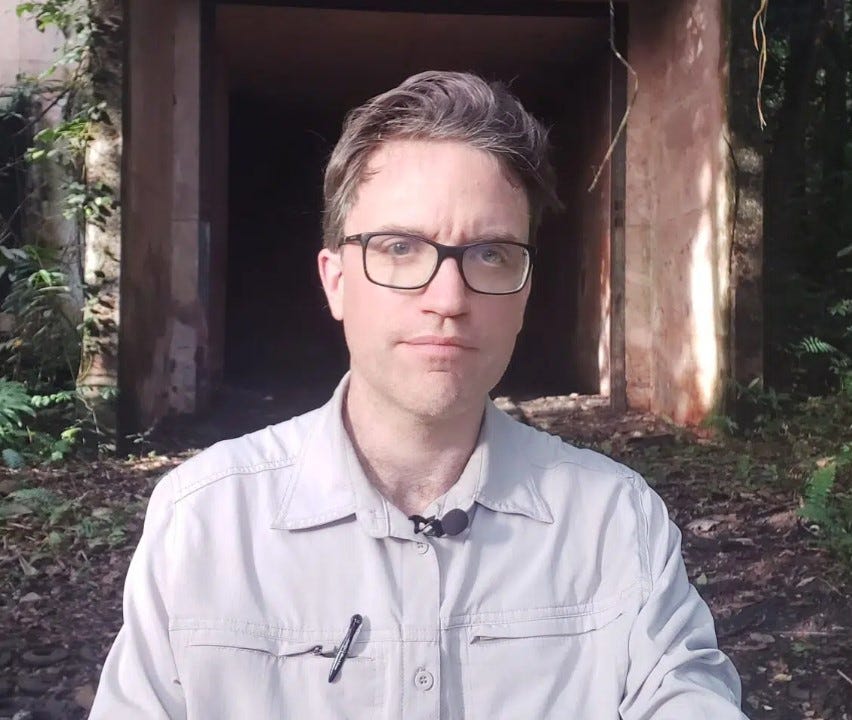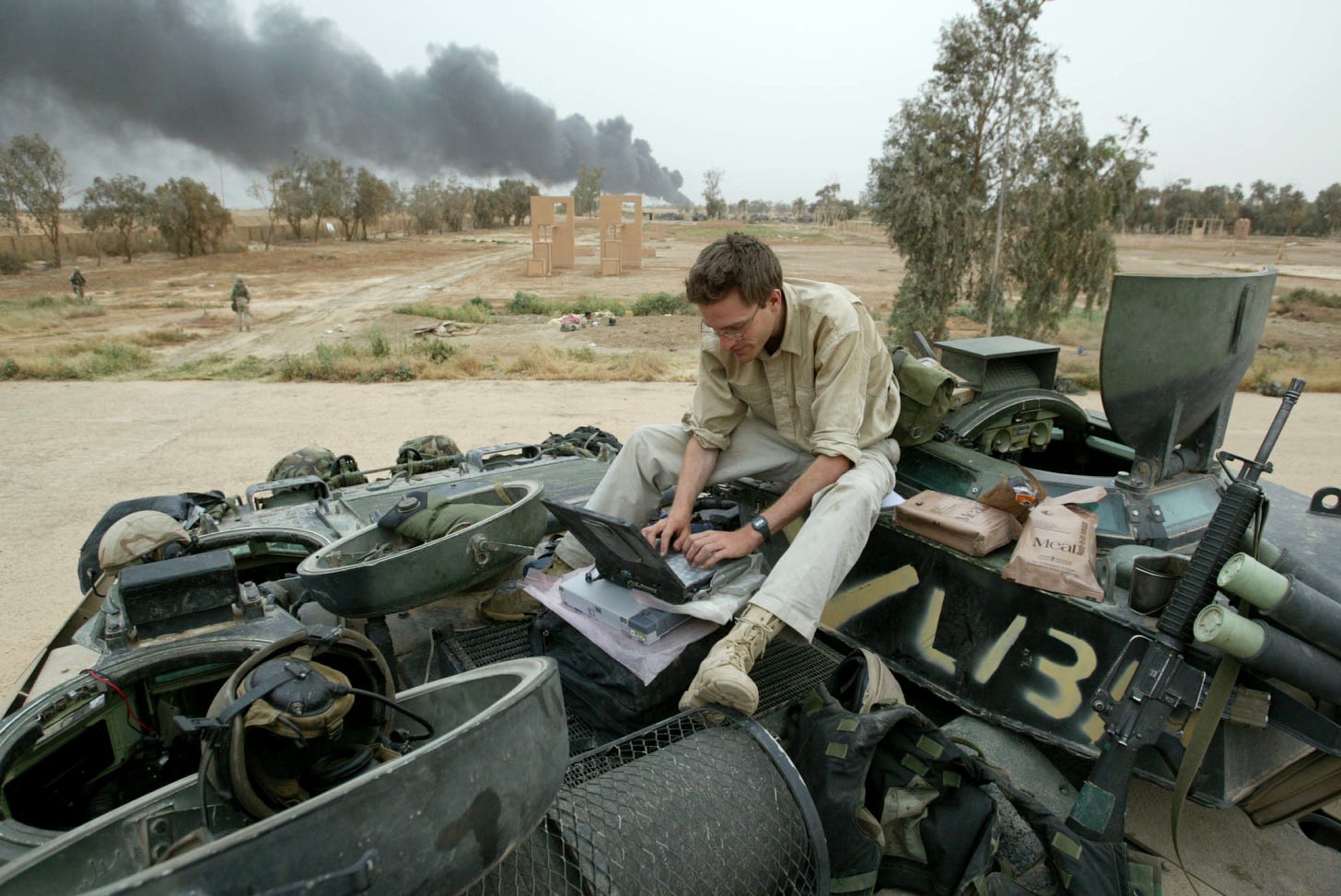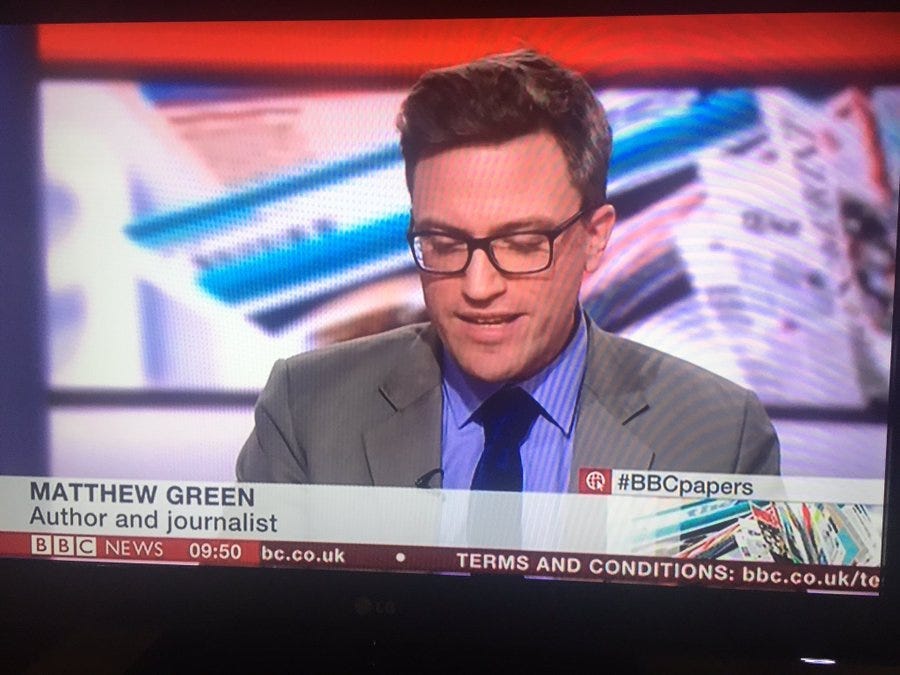Who is Toxic Workplace Survival Guy?
My name is Matthew Green — aka Toxic Workplace Survival Guy — and I know what it means to feel trapped in a toxic workplace.
I know exactly how exhausting, draining, frustrating and at times maddening the experience can be.
I know how utterly isolating it is.
I know the toll it can take on relationships, family, sleep, parenting — everything.
And I know there can be times when the situation seems hopeless.
Like there’s no way out.
But I also know there is a way through.
What You Will Get
By subscribing to Toxic Workplace Survival Guy, you will receive a newsletter on Monday mornings (GMT) written by me to support you to not only survive your ordeal, but find your way to the safe, respectful and nurturing work environment we all deserve.
You will get:
Practical tips for navigating common dilemmas (such as how to deal with management, HR, colleagues and toxic co-workers).
How to safeguard your emotional, mental and spiritual well-being.
The benefits of what I learned from mistakes I made.
Infusions of precisely-calibrated encouragement to start your week.
My unique, trauma-informed perspective on why toxic workplaces are so harmful, and what we can do to protect ourselves.
Curated references to relevant books, podcasts and YouTube videos that I’ve tracked down from scratch — so you don’t have to.
Membership of a growing community of resourceful and courageous people committed to getting out of the toxic workplace, and finding greener pastures.
Details of upcoming online gatherings and courses to support people working their way out of toxic workplaces.
Some of this content will be free, and some paid, so I can make this work sustainable.
If any of this sounds like it could help you, then welcome aboard.
My Story
I’ve survived a suicide attack in Kabul. Been bombed in Darfur. Ridden with U.S. Marines into Baghdad. And I’ve met Ugandan warlord Joseph Kony, after spending a week reaching a clearing occupied by his pint-sized child soldiers, who squelched through the long grass in over-sized Wellington boots, draped in ammunition belts, and armed to the teeth.
I don’t consider myself a shrinking violet.
And yet the toxic workplace was by far my biggest professional challenge.
Let me take you back there.
I thought I had it sorted.
A secure, well-paid job in a prestigious organisation.
A role I cherished, with a chance to make global impact.
The respect and support of well-loved, highly accomplished colleagues.
A sense that I was on the right track.
And then, like so many others, I stepped through the Looking Glass into the upside-down world of the toxic workplace.
At first, I was confused.
Then I was alternately stressed out, withdrawn or preoccupied.
For months, the only conversation in our house was my next move at work.
It affected my wife — a clinical psychologist — who began having nightmares about the situation. Our daughter would ask her: “Is Daddy Okay?”
At times, I could barely recognise who I was becoming.
I can see how easily — without the support of my wife, and the inner resources I’d developed over years of healing work — the ordeal could have broken me.
And yet — ultimately — the toxic workplace proved to be one of my greatest blessings.
Why I Write Toxic Workplace Survival Guy
Toxic workplaces make me angry.
They make me angry because they are unnecessary.
They make me angry because they could be changed by the management teams that tolerate (or create) them.
They make me angry because they cause so much suffering.
And they make me angry because they’re so unfair.
This anger is a resource.
It is fuel.
Because I believe that — as more employees arm themselves with the knowledge and tools they need to survive, and win — things will change.
And we will one day look back on the days of the toxic workplace with the same horror and disbelief with which we now look back on open sewers and public hangings.
Wake Up Call
When I started my career, I would never have imagined that I would one day be putting myself forward to support people in toxic work environments in this way.
Hell, I didn’t even know what a toxic work environment even was.
If you’ve read this far, the chances are I don’t need to break it down for you.
But for the curious, a toxic work environment is a place where you feel constantly on edge. Unsafe. Scapegoated. Used. Treated like an object. Demeaned. And betrayed.
The toxic workplace consumes your every waking moment. It deprives you of sleep. It causes you to question your self-worth, your choices, your values, your future.
It puts you in a state of constant hyper-vigilance.
And it can break up relationships, destroy reputations, and crash your career.
But it can also be the most important Wake Up call you’ll ever hear.
Now I’m on the other side, sharing what I’ve learned helps to cast my own experience in a new light — as a source of growth, not just for myself, but for the many other people out there who are right now going through an experience like mine.
That’s why I’m committed to sharing the wealth of knowledge I accumulated by successfully navigating a toxic workplace with my dignity, mental health and career prospects intact — in fact, dramatically enhanced — as a result of the ordeal.
Trauma-informed Perspective
Until recently, I had assumed that I would confine myself to counselling friends and relatives dealing with the five-dimensional chess game of a toxic workplace. I’ve glad to be able to report that I’ve done this very successfully, and it’s been very rewarding to use my hard-won experience to help others.
But as I advised more people, it occurred to me that I could have exponentially greater impact by launching a newsletter, and online courses, to support those facing the same kinds of dilemmas, uncertainties and stresses I learned to master.
I’ve also realised that you can’t understand the toxic workplace, or get through it intact, unless you understand psychological trauma.
I began my study of trauma in earnest a decade ago, when I published by second book, Aftershock: Fighting War, Surviving Trauma, and Finding Peace, which documents the struggles of military veterans and their families to find new ways to heal from post-traumatic stress.
But my understanding has deepened radically over my past three years of study with the international facilitator Thomas Hübl, including completing his demanding two-year training in the principles of healing individual, inter-generational and collective trauma. I am also a co-host of the annual Collective Trauma Summit, and am training to facilitate large-group integration processes to support communities to heal from historical and present-day traumas. (For more on this, see Toxic Workplace Survival Guy’s parent newsletter, Resonant World).
To be clear: Toxic Workplace Survival Guy is not offering any kind of therapy or medical advice. If you think you are suffering from trauma at work, you should consult a trained medical practitioner.
Nevertheless, as my understanding of how traumatic experiences live on in our minds, bodies and brains has expanded, so too have I developed a more sophisticated model of the toxic workplace — and how we can protect ourselves, even when the toxicity seems too poisonous to bear.
I believe the toxicity runs so deep in so many workplaces precisely because so many employees feel powerless and alone.
Toxic Workplace Survival Guy is here to nurture a global community intent on supporting one another to change that — one workplace interaction at a time.
By subscribing, you will join a network of amazing people committed to helping each other access the resources, wisdom and downright cunning they need to survive — and ultimately thrive again.
People who know that strength comes through vulnerability.
People who know that we were never meant to do this alone.
People who know that there is another way.
Thank you for your attention.
See you on Monday.





